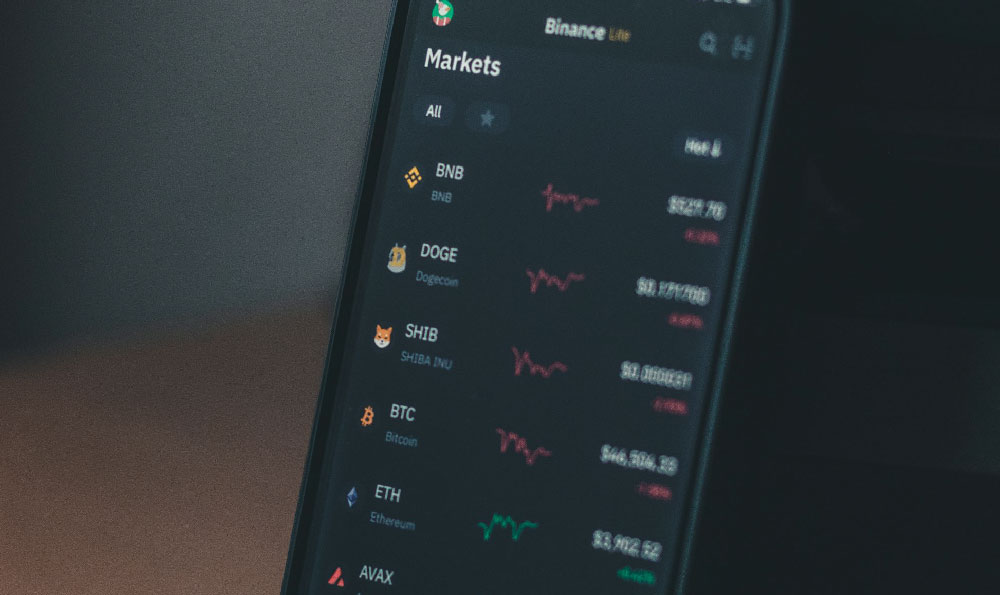The allure of earning extra cash is universal. Whether it’s to pay off debt, save for a dream vacation, or simply build a financial safety net, the desire for additional income is a powerful motivator. Navigating the landscape of potential earning opportunities, however, requires careful consideration and a strategic approach, especially when venturing into the volatile world of cryptocurrencies. Let's explore several avenues for generating extra income, focusing on the potential of cryptocurrency investments and the essential risk management principles to keep in mind.
Before diving into the specifics of cryptocurrency, it's crucial to understand the foundational principles of financial planning. Diversification is key. Never put all your eggs in one basket, especially in a high-risk asset class like cryptocurrency. Your portfolio should include a mix of assets, such as stocks, bonds, real estate (if applicable), and even traditional savings accounts. The proportion allocated to each asset class should be determined by your risk tolerance, investment horizon, and financial goals.
Now, let's examine the potential of cryptocurrency to contribute to your quest for extra income. There are several methods to consider, each with its own set of advantages and disadvantages:

1. Investing in established cryptocurrencies: This involves purchasing well-known cryptocurrencies like Bitcoin (BTC) or Ethereum (ETH) with the expectation that their value will increase over time. This is often considered the most straightforward approach, especially for beginners. However, even these established cryptocurrencies are subject to significant price fluctuations. Thorough research is essential. Understand the technology behind the cryptocurrency, its market capitalization, its use cases, and the potential risks associated with it. Don't simply follow the hype; make informed decisions based on your own analysis.
2. Staking: Many cryptocurrencies operate on a Proof-of-Stake (PoS) consensus mechanism, which allows holders to earn rewards for "staking" their coins. Staking involves locking up your cryptocurrency in a wallet to support the network's operation and security. In return, you receive a percentage of the transaction fees or newly minted coins as a reward. This can be a relatively passive way to generate income, but it also comes with risks. Some staking protocols require you to lock up your coins for a specific period, during which you cannot access them. The value of the cryptocurrency could also decline during the staking period, potentially offsetting the rewards you earn.
3. Cryptocurrency Lending: Certain platforms allow you to lend your cryptocurrency to other users in exchange for interest. This can be a higher-yielding option than staking, but it also carries a higher risk. The borrower may default on the loan, or the platform itself could be subject to security breaches or regulatory issues. Always research the lending platform thoroughly before entrusting them with your cryptocurrency. Understand the terms and conditions of the loan, the borrower's creditworthiness (if available), and the platform's security measures.
4. Trading cryptocurrencies: This involves actively buying and selling cryptocurrencies to profit from short-term price fluctuations. This is a high-risk, high-reward strategy that requires a significant amount of knowledge, skill, and time. You need to be able to analyze market trends, interpret technical indicators, and manage your emotions effectively. Day trading, in particular, can be incredibly stressful and requires constant monitoring of the market. It's generally not recommended for beginners.
5. Participating in Initial Coin Offerings (ICOs) or Initial DEX Offerings (IDOs): These are fundraising events for new cryptocurrency projects. Investing in ICOs or IDOs can be highly lucrative if the project is successful, but it also carries a high risk of losing your entire investment. Many ICOs and IDOs are scams or fail to deliver on their promises. Thorough due diligence is essential. Research the project team, the technology, the market potential, and the legal and regulatory environment. Only invest what you can afford to lose.
6. Mining cryptocurrencies: This involves using specialized hardware to solve complex mathematical problems and validate cryptocurrency transactions. In return, miners receive newly minted coins as a reward. Mining can be profitable, but it also requires a significant investment in hardware and electricity. The profitability of mining depends on the difficulty of the mining algorithm, the price of electricity, and the price of the cryptocurrency. Furthermore, the environmental impact of some mining operations has become a growing concern.
Regardless of which method you choose, remember these crucial risk management principles:
- Do Your Own Research (DYOR): Never blindly follow the advice of others. Always conduct your own research before investing in any cryptocurrency.
- Start Small: Begin with a small amount of capital that you can afford to lose. As you gain experience and knowledge, you can gradually increase your investment.
- Use a Secure Wallet: Protect your cryptocurrency with a secure wallet, such as a hardware wallet or a reputable software wallet with two-factor authentication.
- Beware of Scams: Be wary of scams and Ponzi schemes that promise unrealistic returns. If it sounds too good to be true, it probably is.
- Manage Your Emotions: Don't let your emotions influence your investment decisions. Avoid FOMO (fear of missing out) and panic selling.
- Stay Informed: Keep up-to-date with the latest news and developments in the cryptocurrency market.
In conclusion, earning extra cash through cryptocurrency investments is possible, but it requires careful planning, thorough research, and a disciplined approach to risk management. Diversification, understanding the risks involved, and staying informed are crucial for success. Remember, the cryptocurrency market is highly volatile, and there are no guarantees of profit. Approach with caution and a long-term perspective, and always prioritize protecting your financial well-being. Beyond cryptocurrency, explore other avenues like freelancing, online surveys, or even selling unwanted items. A multifaceted approach to earning extra income is generally the safest and most sustainable path to achieving your financial goals.












